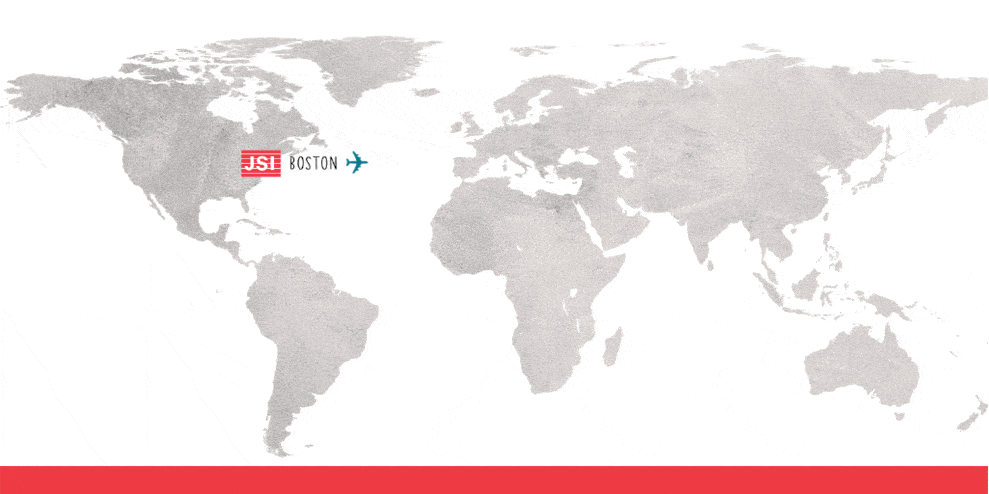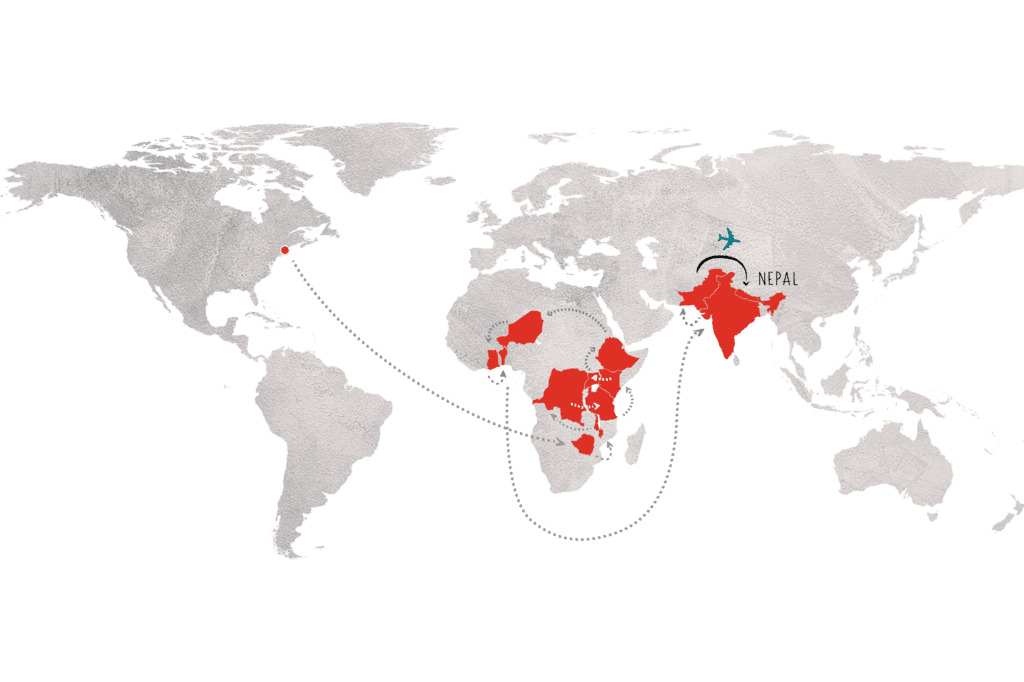This website uses cookies so that we can provide you with the best user experience possible. Cookie information is stored in your browser and performs functions such as recognizing you when you return to our website and helping our team to understand which sections of the website you find most interesting and useful.
Journey to Vaccines for All:
April 24, 2020 – We’ve packed our bags and are ready for our virtual 14-day, 14-country trip to see how #VaccinesWork for all. Starting on April 24, the first day of World Immunization Week, each stop explores different approaches to improving routine immunization (RI) services and ensuring equitable coverage across the life course.
Follow us on Twitter to track our journey!
Our first stop is Zimbabwe, where we worked with communities to ensure every child is reached with immunization services using the “My Village My Home” and home-based record tools.
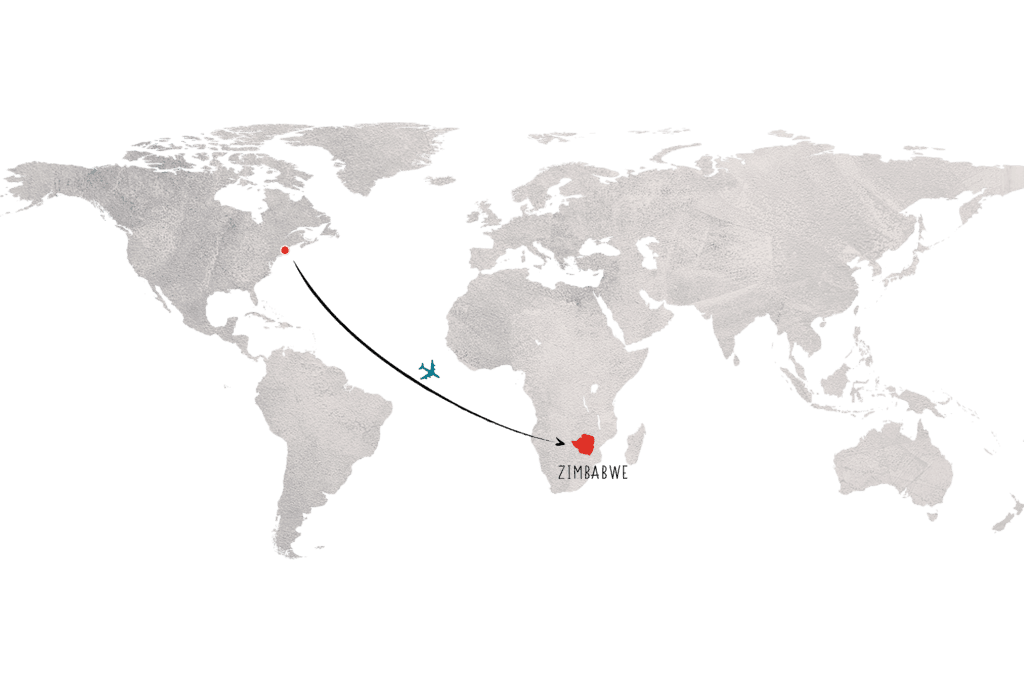
We partnered with the Zimbabwe Ministry of Health and Child Care in 16 high-priority districts to fill gaps in children’s immunization. Village leaders collaborated with health workers and facilities to monitor children’s immunization progress using these tools.
Our second virtual road trip stop is Malawi, where we are supporting efforts to prevent cervical cancer using the human papillomavirus (HPV) vaccine.
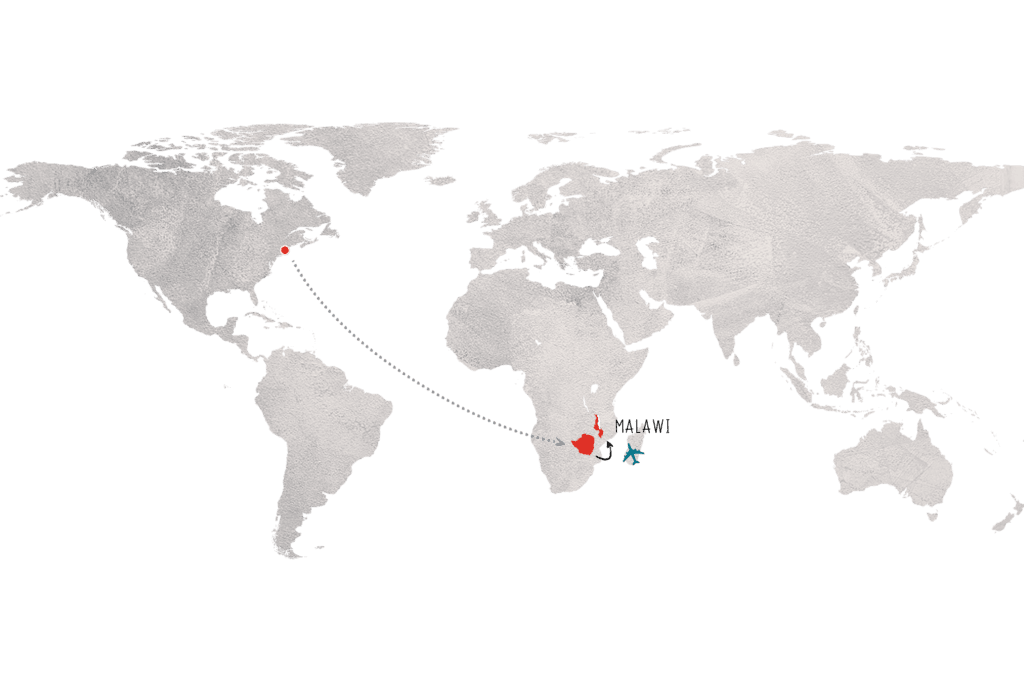
Continuing on, our journey takes us to the Democratic Republic of Congo, where we helped the Ministry of Health develop and test strategies to vaccinate children living in urban poor communities in Kinshasa.
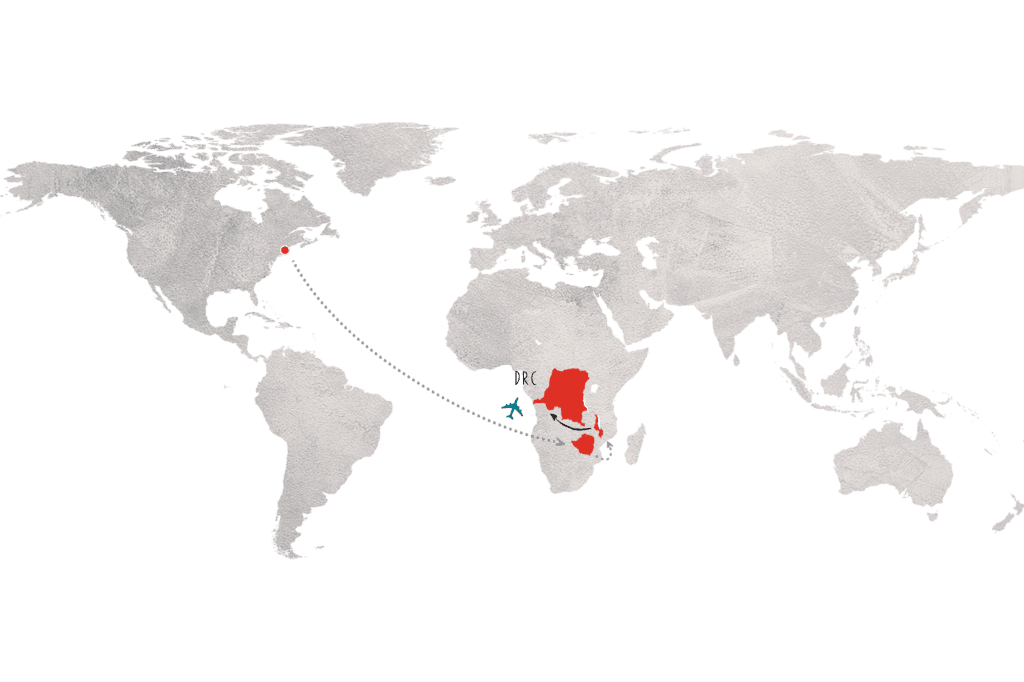
Working with the DRC Expanded Programme on Immunization (EPI) and stakeholders, we conducted a rapid assessment to identify barriers to routine immunization (RI) and designed and pilot-tested three interventions: adapting micro-planning; vaccinating in public places, and integrating private-sector health facilities into the EPI system.
Over 3 months, the zonal EPI reached 2,139 children and 75 pregnant women with all vaccinations through 42 vaccination sessions in seven targeted sites across two health zones.
Our fourth stop is Tanzania, where we are working with the Immunization and Vaccines Development (IVD) Unit of the Ministry of Health, Community Development, Gender, Elderly and Children (MOHCDGEC) to prevent cervical cancer through introduction and rollout of the HPV vaccine for adolescent girls. We are also working with IVD and partner Nexleaf to install and monitor more than 5,000 remote temperature monitoring (RTM) devices.
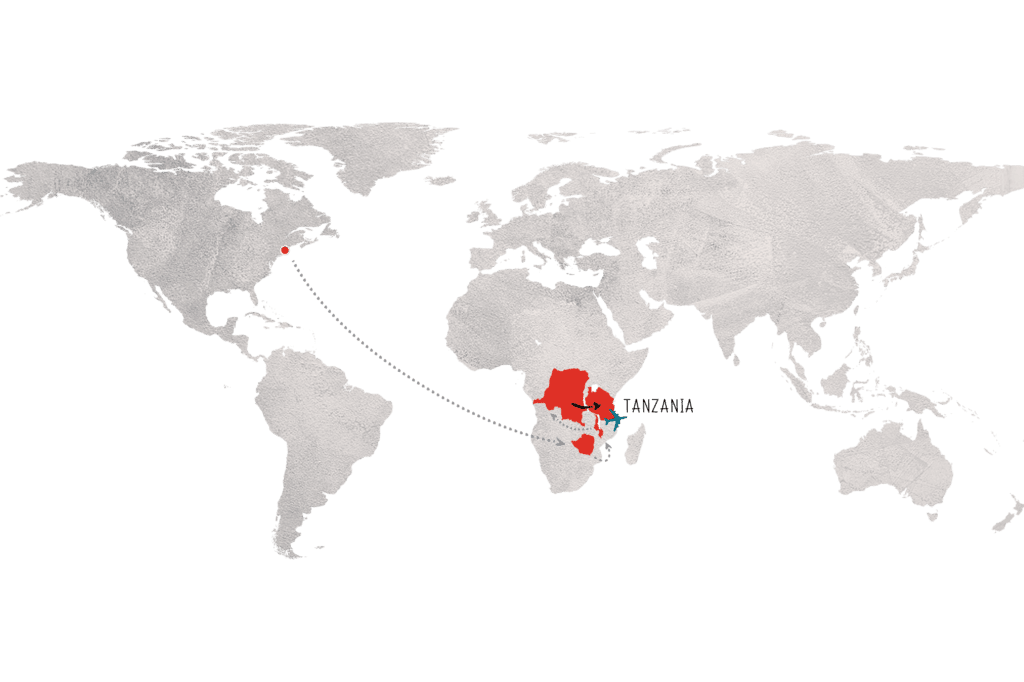
The RTM devices are installed in district stores and health facilities, and send data on the temperature of the cold chain equipment to a dashboard. To prevent vaccine spoilage and reduce wastage, the device also sends SMS alerts to health workers if the temperature falls outside an acceptable range. The real-time data dashboards and temperature alerts help ensure that vaccines make it to the last mile, where they prevent diseases and improve the health of vulnerable populations.
We continue our time in Tanzania, where we supported the introduction of the HPV vaccine through policy and planning, training stakeholders at all levels, community social mobilization activities, and program monitoring.
Stop number five in our virtual trip is Kenya, where we supported a RTM pilot study and implemented peer mentorship and the use of WhatsApp as a tool for health workers.
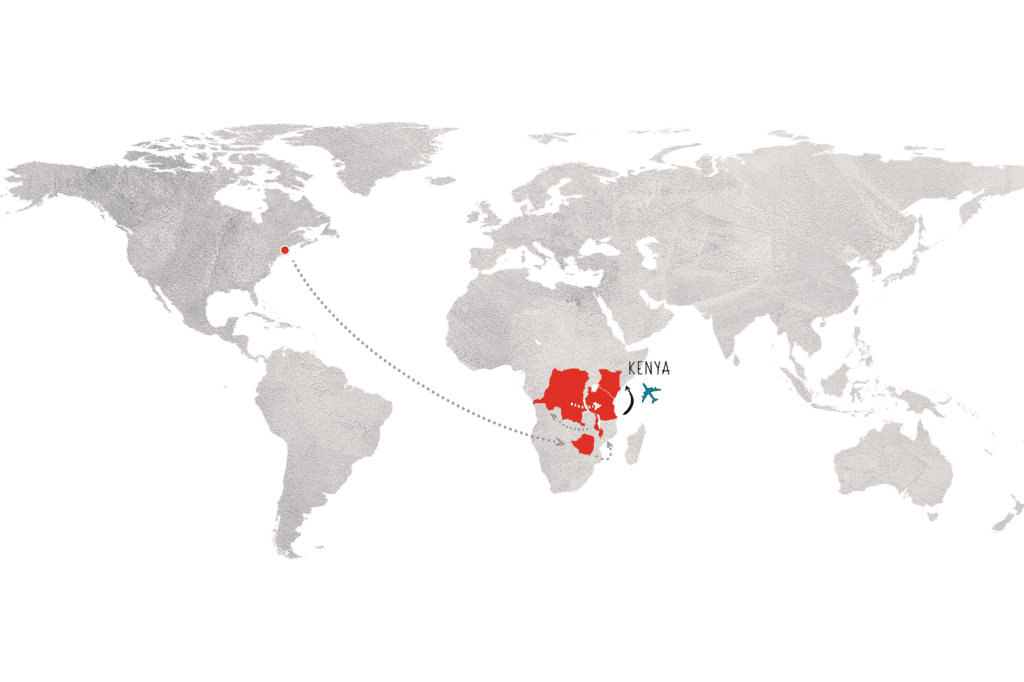
Funded through a Next Generation Immunization Training grant from Bull City Learning, we launched a mentorship program and WhatsApp group discussions to build the immunization capacity of maternal and child health (MCH) nurses in two sub-counties. Findings from our baseline, midline, and endline assessments showed marked improvement in the MCH nurses’ knowledge, skills, and practices in different immunization technical areas.
We continue in Kenya, where JSI supported a pilot study in 36 sites using RTM technology and data review teams over a 3-month baseline and 7-month implementation period. Results showed this two-pronged approach for improving cold chain system outcomes to be effective.
Our sixth stop is Uganda, where JSI helped implement the Reaching Every Child approach through the Stronger Systems for Routine Immunization project.
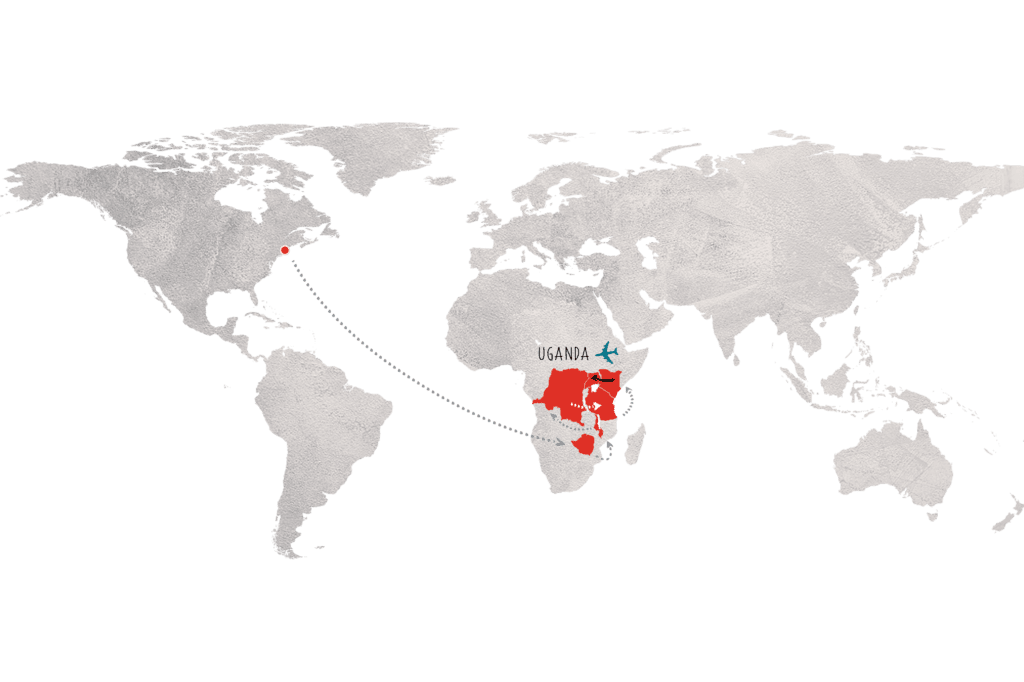
We helped the Ministry of Health and Uganda National Expanded Programme on Immunization improve RI through quality improvement methods that built district and health facility capacity for management, leadership, and accountability in more than 800 health facilities in 27 districts. Endline results showed a 42% increase in the number of communities reached with RI services.
Our seventh stop is in Ethiopia, where the Universal Immunization through Improving Family Health Services (UI-FHS) project provides technical support to enhance the capacity of health personnel to manage and deliver RI services.
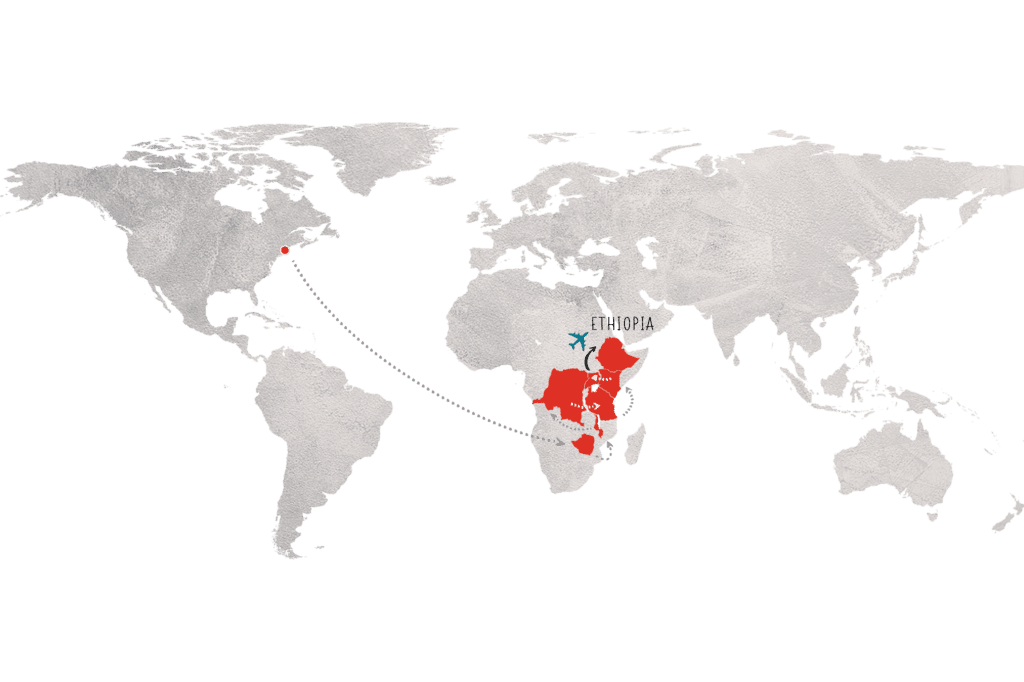
Pack up your bags again and head to Niger, where we have been providing technical assistance to the MOH Immunization Division since 2013, most recently with a focus on improving its supply chain capacity.
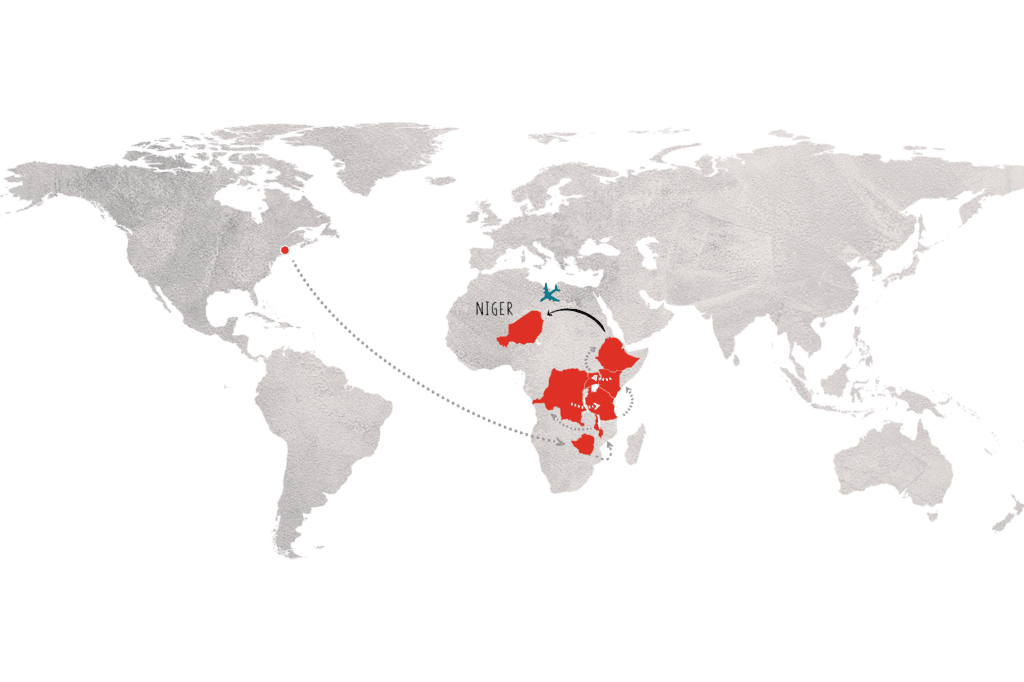
We helped develop strategies for the Cold Chain Equipment Optimization Platform and asked stakeholders to assess current supply chain systems and commit to implementing improvement strategies. Notable achievements were the completion of the system design analysis of the immunization supply chain and the installation of new cold chain equipment, some of which are solar-powered.
Our virtual road trip continues west for our ninth stop in Ghana, where we supported UNICEF/Accra and CDC to apply human-centered design approaches to improve demand and use of vaccination in the second year of a child’s life.
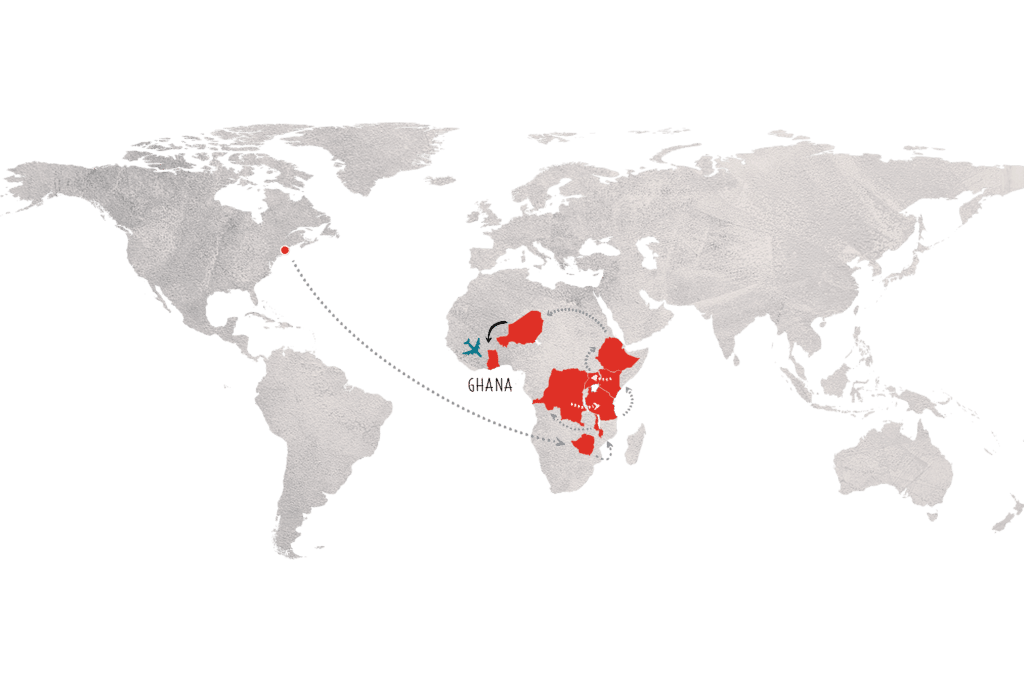
We conducted three workshops in urban districts in the Greater Accra and Northern regions to discuss ways to reach underserved families with immunization in the second year of life. Based on ideas from mothers, fathers, community leaders, and health and education officials, we designed and tested activities to improve demand for and use of immunization services. We engaged preschools and creches in immunization activities, and built female head porters in markets in urban Accra’s awareness of and access to vaccination services.
We continue to Benin, where JSI is providing technical support for the nationwide introduction of the rotavirus vaccine through the Rotavirus Accelerated Vaccine Introduction Network (RAVIN).
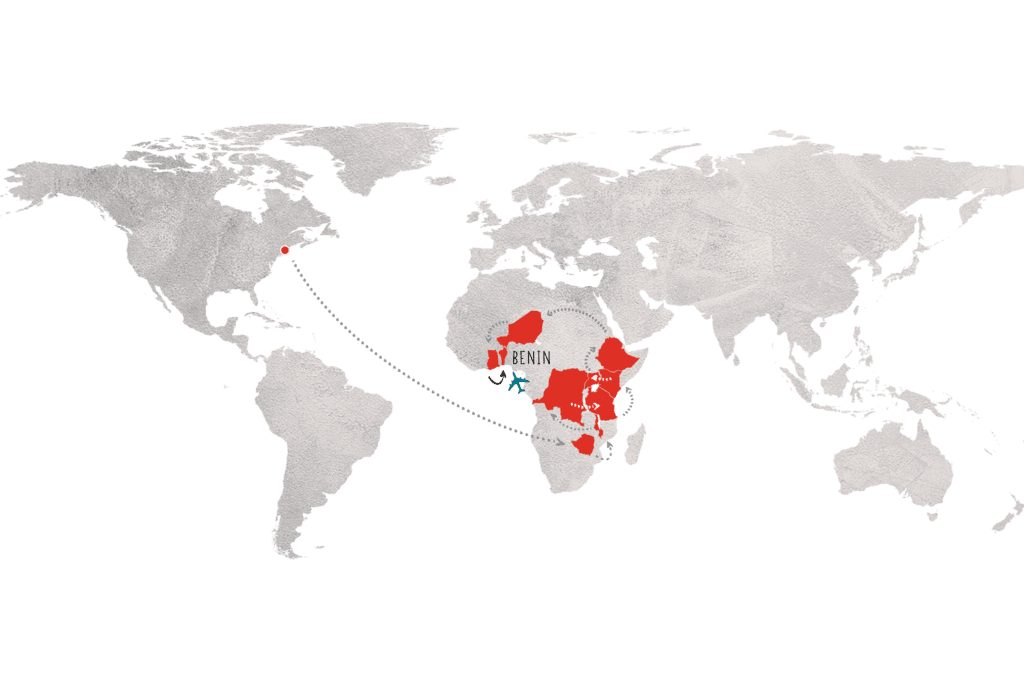
We supported the development and dissemination of educational and demand-generation materials and communications plans for Benin’s 2019 introduction of rotavirus vaccine (RVV).
The eleventh stop leaves the continent of Africa and takes us to India, where JSI has been working for 30 years. With Global Grand Challenges funds from the Bill & Melinda Gates Foundation, we launched an initiative to announce the arrival of vaccinators at immunization centers in two districts of Himachal Pradesh.
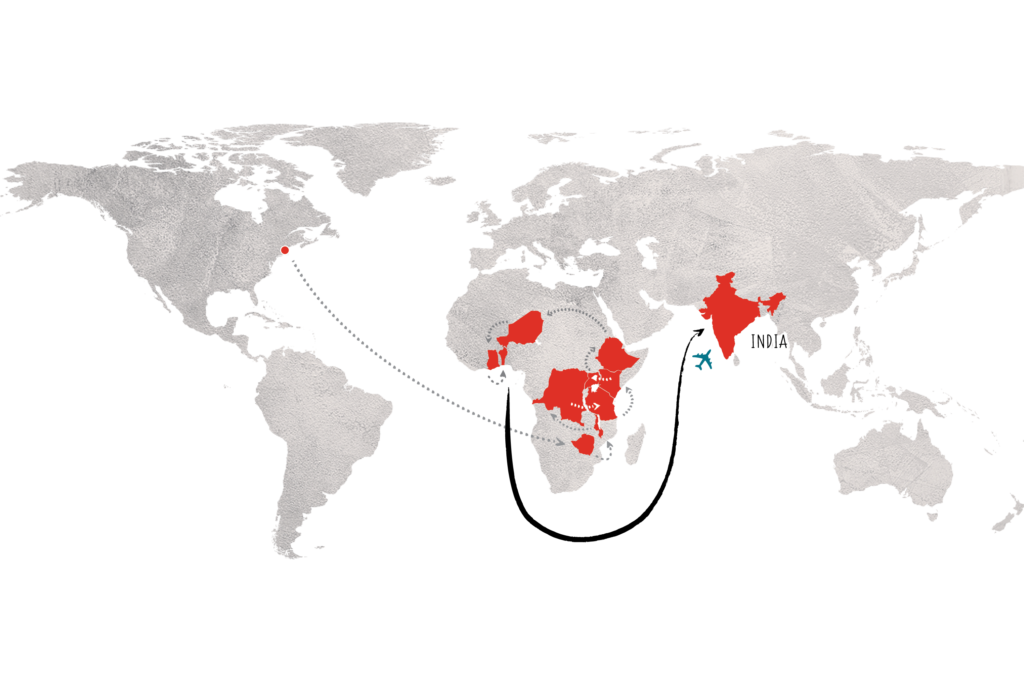
The unique pilot initiative with the state government and local NGOs used traditional drum-beating to alert communities to the arrival of vaccination teams at outreach sites. Endline survey results indicated that health workers and community mobilizers found drum-beating an effective way to communicate and increase timeliness of immunization in the target community. Due to the success, there has been proposed expansion in similar rural districts in the region.
JSI continues our trip in India, where we have been a key partner in the introduction and nationwide roll-out of the rotavirus vaccine (RVV). In 2016, the government began a phased introduction and completed national roll-out of two RVVs in 2019 JSI had a critical role in meetings, training, and materials development, and we are now supporting the government’s post-introduction with program review, monitoring and evaluation, and field implementation as the new vaccine is integrated into the RI system.
Stop 12 brings our virtual road trip to Pakistan.
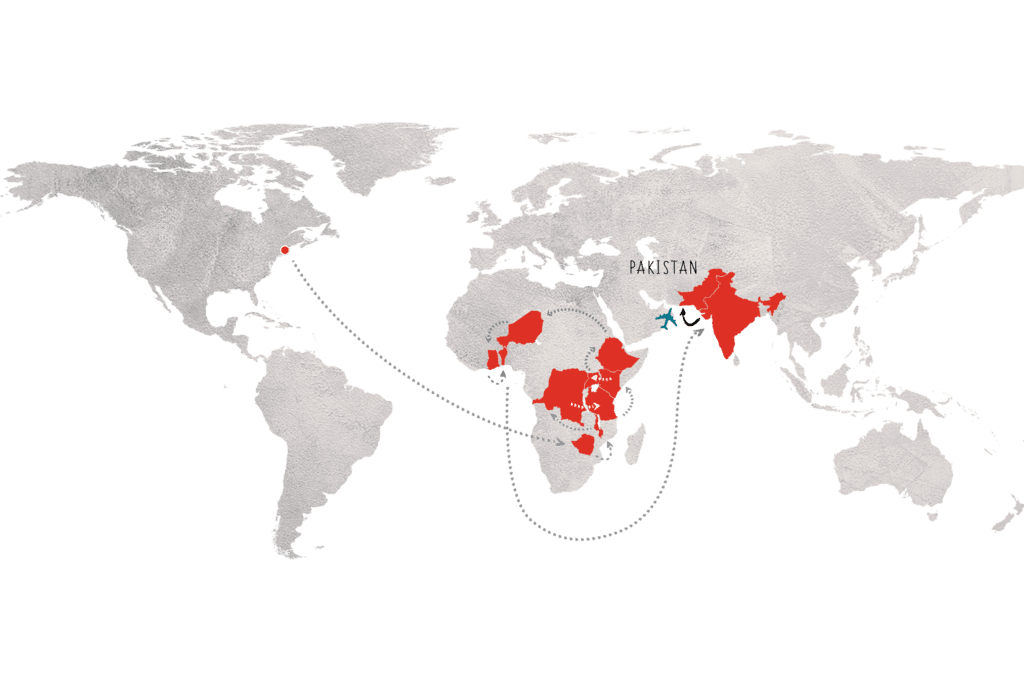
After conducting an assessment of the current RI system in Karachi, we helped the EPI and Government of the Sindh Province create the “Roadmap for Achieving Universal Immunization Coverage in Karachi, Pakistan.” The roadmap development process convened all immunization partners, non-health stakeholders, private sector health providers, and others in Karachi city to form this plan of interventions to increase full immunization coverage in Karachi from 63% to 90% by 2022.
RAVIN collaborated with WaterAid Nepal and the MOH to develop training materials, conduct planning, and roll out an integrated RVV/water, sanitation, and hygiene training package during RI sessions in four districts, with results suggesting improved immunization coverage.
Before returning home, our final and fourteenth stop is Haiti, where we received funding from Gavi to develop an urban immunization model and provide technical assistance to implement the strategies to improve immunization coverage in Cité Soleil. This project is serving as an incubator for developing and testing tools and methods and is now is a model for other urban areas
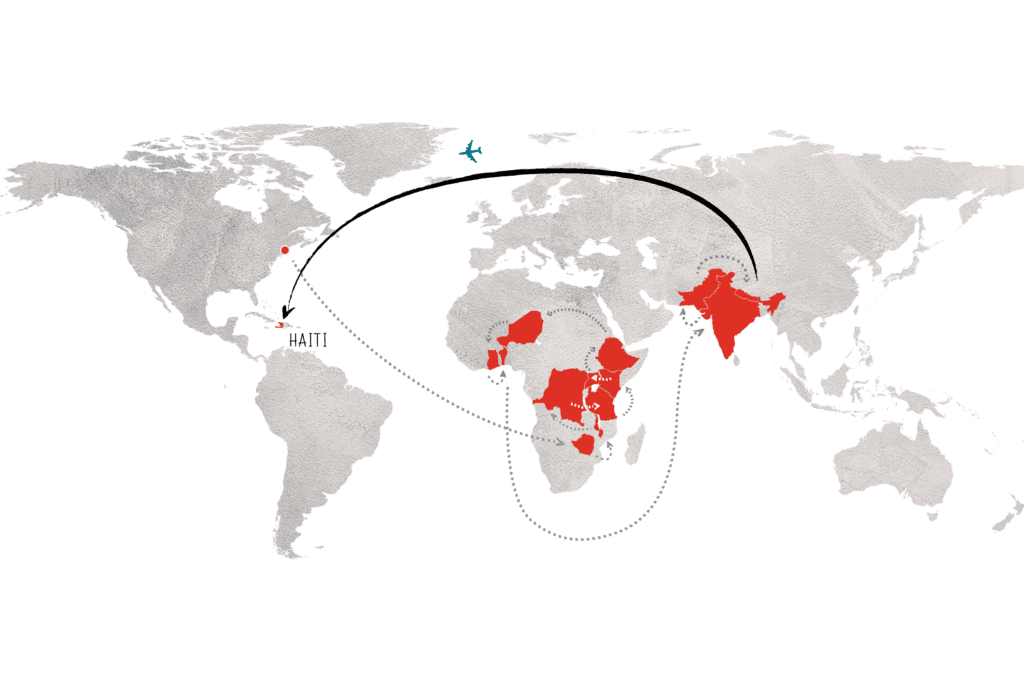
Our technical assistance on implementing key components of the model has more than doubled the number of children immunized. Our approach improves on missed opportunities for vaccination; facilitates health facility coaching and mentoring; and creates flexible vaccination based on user needs. As a result of these interventions, there has been a 46% improvement on Penta 3 coverage and 80 % reduction in zero-dose children.
Home! While we have returned to the USA and once World Immunization Week is over, our journey to strengthening routine immunization to reach every child continues. And as COVID-19 thwarts routine immunization, JSI remains committed to helping countries build equitable and strong health systems. Only then can we ensure that #VaccinesWork for all.
